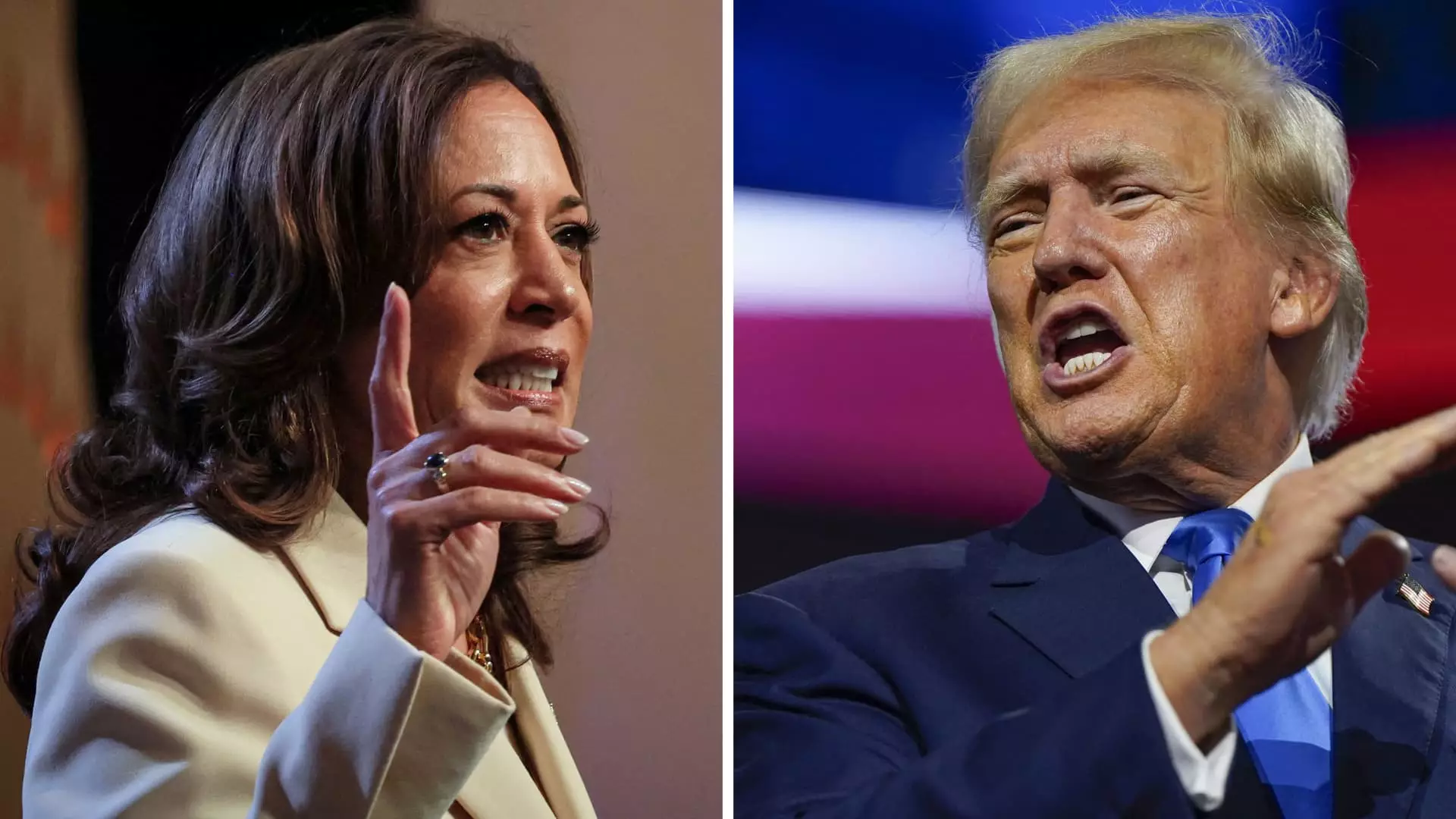Recent events surrounding former President Donald Trump’s visit to Arlington National Cemetery have sparked heated debates about the appropriate use of sacred spaces for political purposes. The incident has raised significant questions about respect for memorial sites dedicated to fallen heroes and the ethical implications of intertwining political agendas with solemn commemorations. Vice President Kamala Harris’s strong reaction to Trump’s actions, which she categorized as a political stunt, highlights the tensions between political expression and respect for the sanctity of memorials.
Political stunts have become a hallmark of modern campaigning, often designed to capture media attention and galvanize support. Critics argue that such actions can undermine the significance of the events being commemorated, especially when they occur at sites of national mourning. Harris’s assertion that Trump disrespected “sacred ground” reflects a broader societal concern about the commodification of grief and remembrance for political gain. This incident poses a crucial question: to what extent should political figures be held accountable for their actions in hallowed places?
Trump’s visit, timed to coincide with the anniversary of a tragic event—the death of 13 service members during the chaotic U.S. withdrawal from Afghanistan—could be perceived as an effort to position himself as a sympathetic figure in the context of tragedy. However, this intent is complicated by the optics of campaign staff engaging in political activities at the cemetery, which violates established federal laws prohibiting such actions in military memorials.
In the backlash that followed, Ohio Senator JD Vance countered Harris’ attack, pointing the finger back at her and the Biden administration’s handling of the military exit from Afghanistan. His words invoked the families of the victims, suggesting that Harris had a lack of accountability for her role in the situation. This exchange reveals a classic “blame game” in political rhetoric, where each side attempts to position the other as the primary offender in a tragic narrative. This tactic often distracts from the core issues and complicates the dialogue necessary to address the real concerns of the families affected.
Vance’s accusation that Harris should focus on investigating the deaths of service members rather than critiquing Trump indicates a deeper political strategy: to deflect criticism and redirect public sentiment. It also illustrates how politicization can overshadow genuine mourning, transforming tributes to loss into battlegrounds for partisan bickering.
The situation also casts a light on the ethical and legal stipulations governing political activities at military cemeteries. The Arlington Cemetery’s statement, reiterating the prohibition against political campaigning on sacred grounds, serves as a crucial reminder of the need to respect regulations meant to protect the sanctity of such spaces. The assertion from the Trump campaign that a cemetery staff member experienced a “mental health episode” further complicates the narrative surrounding the event, introducing the possibility of miscommunication amid the charged environment.
The responses from both sides raise critical discussions about the ethical implications of using memory and sacrifice as tools for political posturing. When memorial sites become arenas for political battles, the dignity of those whom the sites honor risks being overshadowed, transforming mourning into a spectator sport.
This unfolding situation illustrates a concerning trend in which political actions at memorial sites are scrutinized, and the lines between honor and exploitation become increasingly blurred. As Vice President Harris articulated, the actions surrounding Trump’s visit prompt reflections on the respect owed to those who have sacrificed their lives for the nation and whether it is appropriate to leverage such moments for political gain.
In a democratic society, the memory of fallen service members should serve as a unifying force, transcending partisan divides. However, when such moments become fodder for political gamesmanship, the honor of their sacrifice risks becoming lost amidst the clamor of electoral ambitions. It calls for a reevaluation of how political figures engage with remembrance and the ways in which they honor—or exploit—the legacies of those who have served.


Leave a Reply